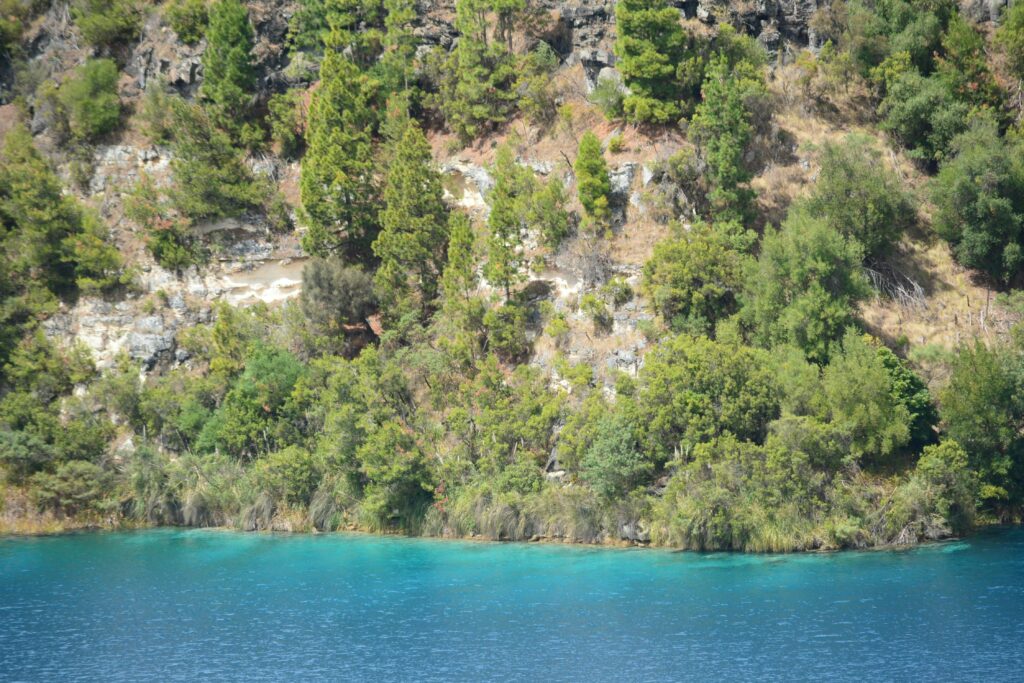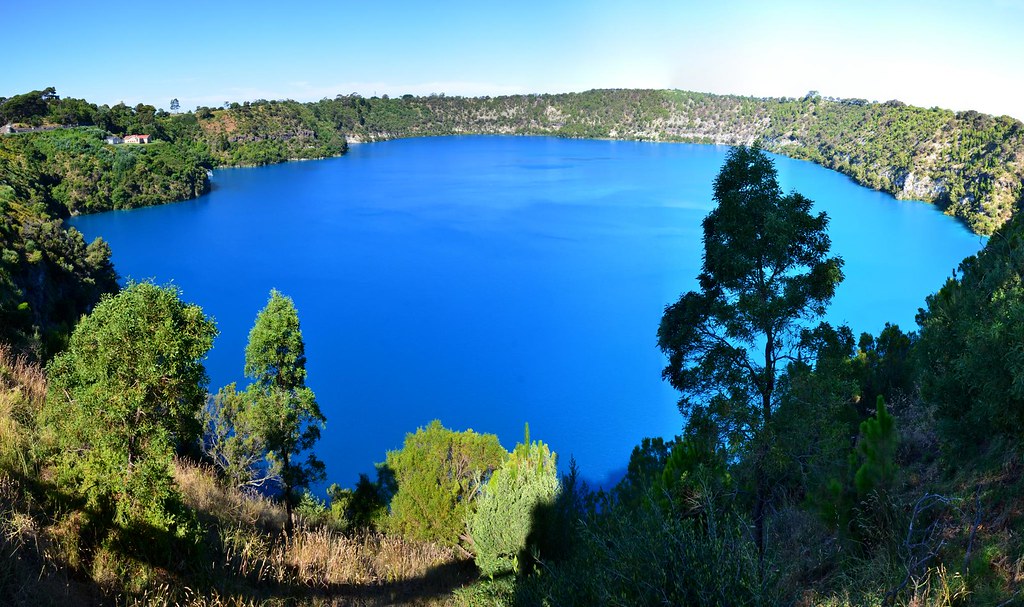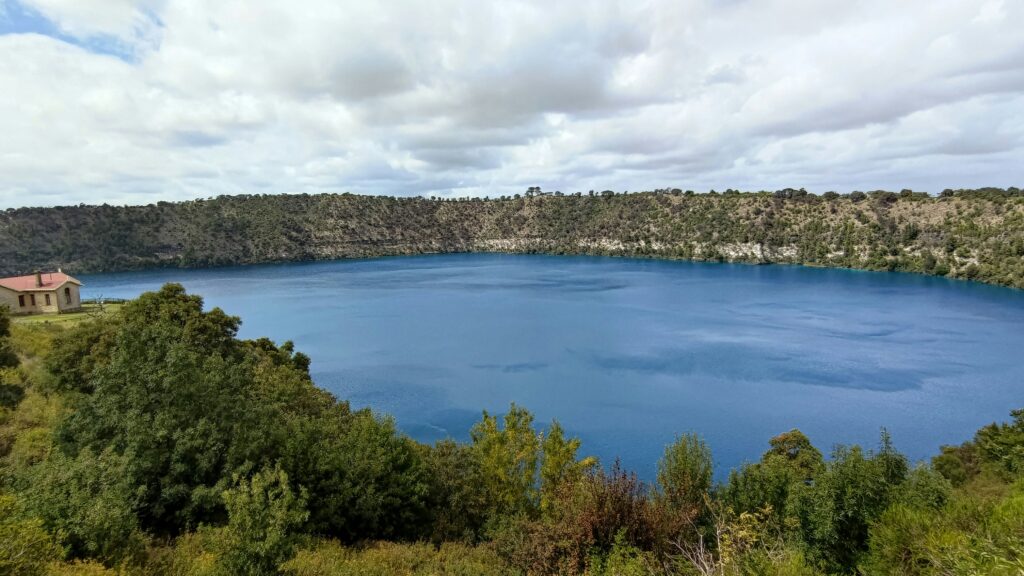Tucked away in the heart of South Australia’s Limestone Coast, Mount Gambier’s Blue Lake stands as a mesmerizing jewel of nature, captivating visitors with its stunning sapphire waters, dramatic volcanic origins, and enchanting beauty that defies imagination. Join me on a journey to explore the allure, mystery, and magic of the Blue Lake, a geological wonder that beckons travelers from far and wide to witness its breathtaking colors, immerse themselves in its serene ambiance, and uncover the secrets that lie beneath its tranquil surface.

As you approach the Blue Lake, a sense of awe washes over you, drawing you closer to the edge of the crater rim where the azure waters of the lake unfold before your eyes in a spectacle of natural grandeur and splendor. The intense blue hue of the lake’s waters, ranging from cobalt to turquoise depending on the time of year, mesmerizes and captivates, leaving you spellbound by the sheer beauty and purity of this remarkable body of water that seems to defy the boundaries of the possible. Whether you’re admiring the lake from the viewing platforms along the rim or hiking along the crater’s edge to catch different perspectives, each vantage point offers a new revelation, a new sense of wonder, and a new appreciation for the timeless beauty of the Blue Lake.
More:Read about on Soaking in the Pristine Beauty of Nosy Be
The origin of the Blue Lake’s striking color and pristine waters can be traced back to its unique geological formation and the intricate interplay of natural forces that have shaped its character over millennia. Formed within the crater of an extinct volcanic cone, the Blue Lake is a true natural marvel, created by a combination of factors such as the presence of limestone in the surrounding area, which acts as a natural filtration system, and the refraction of light off suspended particles in the water, which gives rise to the lake’s vivid blue coloration. The lake’s color is further heightened during the summer months, when the surface temperature rises, causing the calcium carbonate in the water to precipitate out and intensify the blue hue, creating a spectacle that must be seen to be believed.
Beyond its mesmerizing color and geological origins, the Blue Lake holds a deep significance for the local Ngarrindjeri people, who have long revered the site as a place of cultural importance and spiritual connection. Known as Wirritjininty, meaning “deep, clear water,” the Blue Lake holds a special place in Ngarrindjeri lore and tradition, embodying the spirit of the land, the wisdom of the ancestors, and the sanctity of the natural world. As you stand by the shore of the lake, you can sense the palpable reverence and respect that permeates the air, honoring the deep spiritual ties that bind the Ngarrindjeri people to this sacred place and recognizing the interconnectedness of all life within the web of creation.

For visitors to the Blue Lake, the opportunity to immerse themselves in the beauty and tranquility of this natural wonder unfolds through a variety of experiences and activities that cater to a range of interests and preferences. Whether you’re drawn to hiking along the crater rim, picnicking in the scenic reserve that surrounds the lake, or simply sitting in quiet contemplation by the water’s edge, the Blue Lake invites you to slow down, breathe deeply, and embrace the moment, allowing the serenity and magic of the place to wash over you like a gentle wave of calm and clarity. Birdwatchers can spot a variety of native bird species flitting through the trees, while photographers can capture the play of light and shadow on the water’s surface, creating stunning compositions that reflect the ephemeral beauty and timeless allure of the Blue Lake.
More: Wanted to download Odisha Magazines, visit here.
One of the quintessential experiences at the Blue Lake is witnessing the transition of colors that occurs during the seasonal changes, as the lake undergoes a remarkable transformation from its winter steel-gray hue to its summer turquoise-blue brilliance. The annual phenomenon, known as the “Blue Lake effect,” is a sight to behold as the lake’s waters shift and shimmer in response to the changing conditions, creating a dynamic interplay of light, color, and atmosphere that enchants the senses and awakens a sense of wonder and appreciation for the natural world’s enduring beauty and mystery. Whether you choose to visit the Blue Lake in the tranquil winter months or the vibrant summer season, each moment spent in its presence is a gift, a reminder of the fleeting nature of time and the enduring power of nature to inspire, uplift, and transform our perceptions of the world around us.

In conclusion, Mount Gambier’s Blue Lake is a timeless symbol of nature’s beauty, resilience, and wonder, a place where the sacred meets the sublime and the ordinary transcends into the extraordinary. Whether you’re a nature lover, a seeker of beauty, or a curious traveler in search of new horizons, the Blue Lake beckons you to immerse yourself in its magical embrace, to discover its secrets, and to connect with the elemental forces that have shaped its identity and spirit over countless ages. May your journey to the Blue Lake be a voyage of discovery, contemplation, and appreciation for the natural world’s boundless creativity and majesty, as you pause, reflect, and marvel at the wonder of a place where blue meets earth, water meets sky, and beauty meets eternity.
FAQ For Mount Gambier’s Blue Lake: A Captivating Natural Wonder
What makes Mount Gambier’s Blue Lake so special?
Mount Gambier’s Blue Lake is renowned for its vivid blue color, which changes dramatically from dark blue to a brilliant turquoise between December and March each year. The lake’s stunning hue is due to a unique combination of factors, including the presence of limestone and the scattering of light.
How deep is the Mount Gambier’s Blue Lake ?
The Blue Lake is incredibly deep, reaching depths of up to 77 meters (252 feet) at its deepest point. Its sheer depth contributes to the striking color variations observed throughout the year.
Can visitors swim in the Mount Gambier’s Blue Lake ?
Swimming in the Blue Lake is not permitted, as the lake serves as a water source for the town of Mount Gambier. However, there are other nearby lakes and sinkholes in the region where visitors can swim and explore.
Are there walking trails or lookout points around the Blue Lake?
Yes, there are well-maintained walking trails and lookout points surrounding the Blue Lake, offering visitors the opportunity to admire the lake’s beauty from various vantage points. The Centenary Tower provides panoramic views of the lake and the surrounding volcanic landscape.
When is the best time to visit the Mount Gambier’s Blue Lake ?
The best time to visit Mount Gambier’s Blue Lake is during the summer months of December to March when the lake displays its most vibrant turquoise color. However, the lake is an enchanting sight year-round, with each season offering a unique perspective on this natural wonder.
Are there guided tours or visitor centers near the Mount Gambier’s Blue Lake ?
Yes, visitors can find information at the Mount Gambier Visitor Centre or arrange guided tours to learn more about the geological significance and history of the Blue Lake and its surrounding area.

